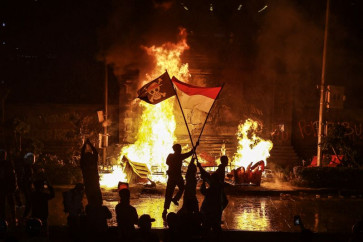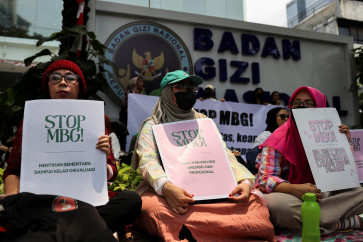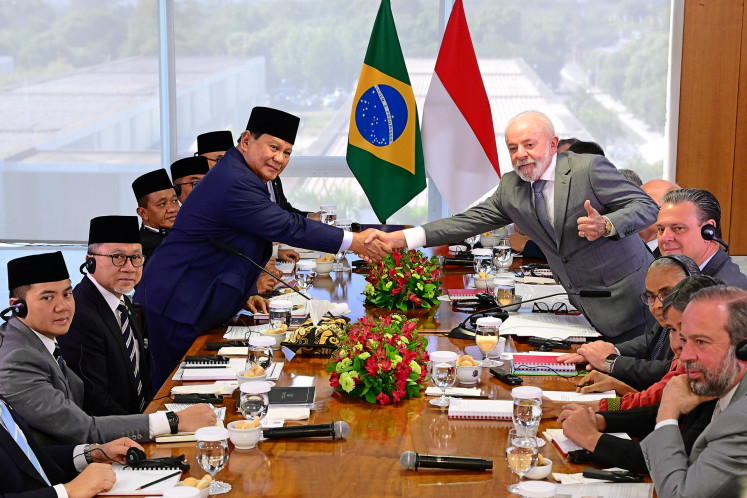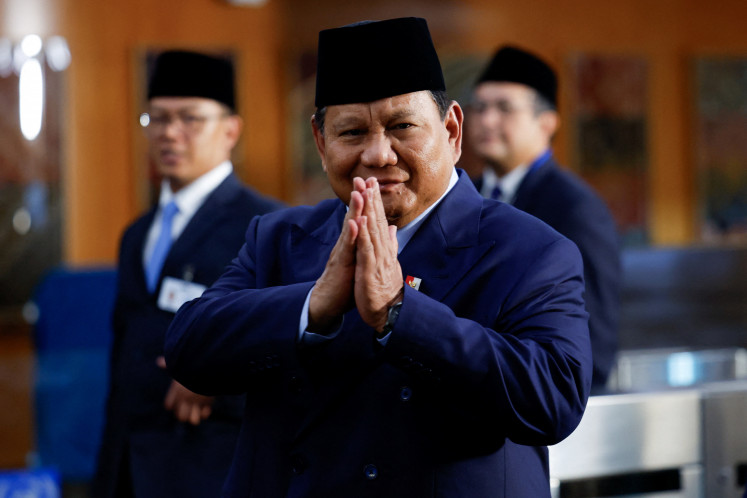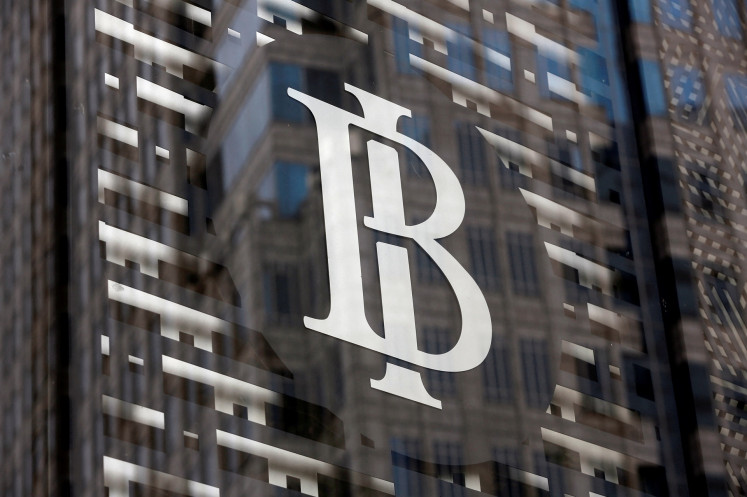Popular Reads
Top Results
Can't find what you're looking for?
View all search resultsPopular Reads
Top Results
Can't find what you're looking for?
View all search resultsRole of internet in a society full of hatred
This year, according to the National Police, 483 Indonesians are known to have joined the Islamic State (IS) radical group, which has gained worldwide popularity by its extensive and professional use of the internet.
Change text size
Gift Premium Articles
to Anyone
H
atred can be spotted throughout the history of civilization, whether against scientists or the targeting of Jews, the list goes on. In the internet era, hatred is merely binary numbers that float across cyberspace but indeed it can be overtly devastating. The current outbreaks that occupy social media and the internet as a whole have signified to us that we are living in a society oiled by hatred.
The rejection of nine Muslims at Kupang airport recently is just an interim alert that hatred has released an unhealthy imagination toward particular identities.
It happened days after a number of Muslims broke up a Christmas service in Bandung. The raid has provoked public outcry and the hatred has become reciprocal.
Online media has occupied a supporting role in spreading the hatred as the internet has become a home for those spoofed by hoaxes. In no time, our society has been taken over by anger that has influenced many into believing in a narrowminded view of identity.
This year, according to the National Police, 483 Indonesians are known to have joined the Islamic State (IS) radical group, which has gained worldwide popularity by its extensive and professional use of the internet.
They have been deemed as the most effective terrorist group in using online media that has successfully deceived many Muslims into joining and have benefited from the internet by engaging in cyber crimes to raise millions of dollars to sustain their propaganda. Today, we can easily find on the internet tutorial videos on how to construct self-made bombs and websites that propagate hatred against supposed infidels.
Off-line hatred, nowadays, has transformed into online propaganda. It is reaching more and more communities and fuels society with fear, insecurity and panic. The explosion of fake news has made the internet no longer a socially pleasant place. Social intimation is at stake due to our judgement toward dissent and identity. It is a matter of time until we realize that something far more valuable in our common humanity will be ripped away.
What is the actual cost to society if the internet is being filled with hatred?
Since its penetration in the 1980s, the internet has been accelerating our lives in economics, military, politics, culture and even spirituality. The internet’s emergence brought a new medium of expression for people. Society has never been interconnected in such a way than ever before. But, hatred has always been part of mankind’s history. It exploits issues to survive but also at the same time can deflect our attention from more pertinent matters.
The ever-increasing use of the internet to deploy hate propaganda is being taken into account by governments but in a way we have never imagined before. The internet is rather being considered as a new threat to society, so governments have been thinking in order to save people, mass surveillance has to be employed. In the name of combating hate speech, governments covertly have been watching our screens and have passed laws to restrain our ability to articulate online.
It is not only a matter of expression but also privacy. Bulk collection of personal data online is required to identify alleged threats. We are profiled based on the information being extracted from us wittingly or unwittingly. We may not worry since there may be nothing to hide while our intimate correspondences between family members or business relationships, movements, or even sex life are being analyzed.
The case of the National Security Agency (NSA) in 2013 has proven to us that governments can be uncaring of our fears of hate propaganda or as to what we do not try to hide. This is more political economy than the fear of real hate.
Marc Goodman (2015) says “terrorism is just an excuse”, meaning societies have been filled with government-endorsed hatred in order to employ ever-wider surveillance on their citizens. Online propaganda exists but laws rarely are justly enforced.
Currently, in Indonesia, we can find off and online movements of hatred against kafir (infidel) or “leftwing people” and the LGBT community of which have not yet faced due process at all. We can find thousands of websites that propagate hatred but not one of them have been sanctioned properly.
Instead, censorship has targeted the wrong websites while online surveillance has been instilled.
The revision of Law No. 11/2008 on electronic information and transactions that recently came into effect contains no significant changes to combat online hate speech. Rather, it provides the government with significant capabilities to screen online activity (Article 40/2a) and employ likely-hazardous censorship accordingly (Article 40/2b). It also reaffirms literal errors as to how to better interpret hate speech online and to sanction a culprit based on agreed human rights standards. In this regard, the government can potentially infringe the principles that require legality, legitimate objectives and proportionality on regulating internet content.
Instead of providing people with full protection from online hatred, the law rather authorizes the practice of surveillance toward communication in an expansive and potentially repressive way. The law is only a curative model to quell hate crimes and overlooks the full role of civil society to cope with the issue. The law at it stands calls into doubt the independency of authority and the proper guarantees of privacy collection is at stake.
But, what is more dangerous than the persistence of surveillance? That is an unwitting society fueling a government’s will to employ mass surveillance on innocent citizens arbitrarily.
Once arbitrary surveillance is applied, our basic freedom to express online will either become to extremes: too much expression for condemnation or less expression without any guarantee of human rights.
It is our common humanity to have full protection of privacy for the sake of freedom of expression. Our society needs to play its role to watch over the government so as to comply with standards that have been determined in the Constitution. Hatred, however, is not one of our values. The misuse of the internet shall be surmounted without sacrificing our humanity.
---------------
We are looking for information, opinions, and in-depth analysis from experts or scholars in a variety of fields. We choose articles based on facts or opinions about general news, as well as quality analysis and commentary about Indonesia or international events. Send your piece to community@jakpost.com. For more information click here.


